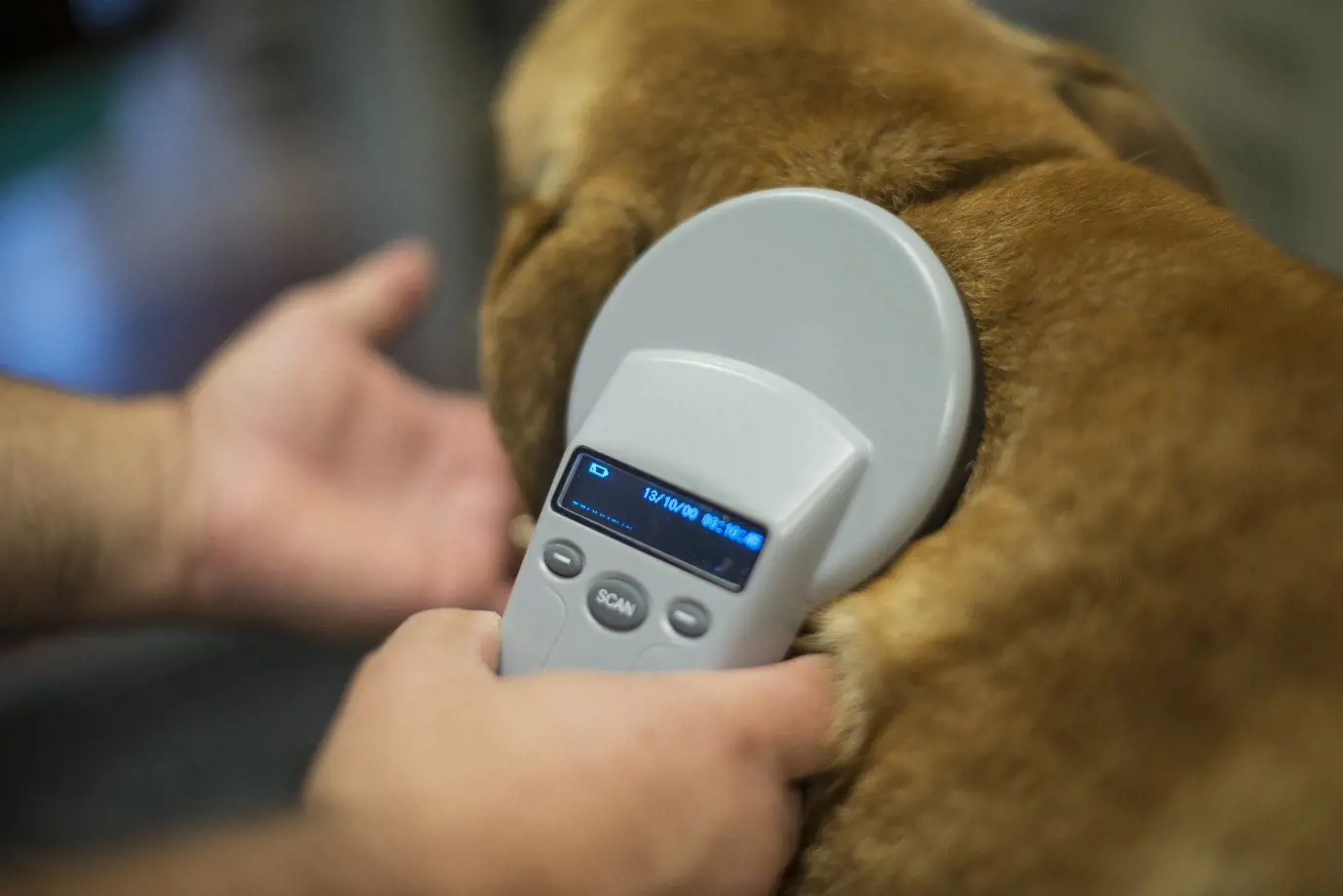How to eliminate worms in dogs
18th March, 2024

Worm infestations in dogs are a common and rather unsavoury issue that most, if not all, dog owners have to deal with at some point. The parasites can cause significant discomfort for your canine companion, and in some cases, can also pose a risk to human health.
Taking your dog to the vet is the first step as they will diagnose the problem accurately. Maintaining good hygiene, keeping their living area clean and ensuring they eat thoroughly cooked food can prevent future infestations. Regular deworming, as recommended by your vet, can also keep worms at bay.
Symptoms of worm infestation in dogs
Some common signs of a worm infestation in dogs include:
- Weight loss, despite a normal or increased appetite
- A swollen or 'pot-bellied' appearance
- Diarrhoea, potentially with blood
- Vomiting
- Fatigue or lethargy
- Poor coat condition
- Coughing (in the case of heartworms)
If your furry friend has been acting a bit off lately, it's important to consider all possibilities, including a worm infestation or intestinal parasites. The symptoms of worm infestation in dogs can be quite varied, and it's essential to be aware of them to quickly get your pet the help they need.
In severe cases, dogs might suffer from anaemia due to blood loss caused by certain types of worms. They may also display unusual behaviour due to discomfort, like being more lethargic than usual. It is important to note that some dogs may not show any signs at all, making regular vet check-ups crucial for their health.
Worm infestations can have serious health consequences for your pet if left untreated. Therefore, if you notice any of these symptoms in your dog, it's best to consult with a vet immediately. Early detection and treatment of adult worms can save your dog from discomfort and potential life-threatening complications.
Medical treatment

Your vet can prescribe a deworming medication based on the type and severity of the worm infestation. These deworming medications often need to be repeated after a few weeks to ensure complete elimination of the parasites.
Worm infestation in dogs is a common issue that requires immediate attention. If you're a dog parent, it's important to understand that these tiny parasites can cause considerable discomfort and serious health problems if left untreated. Therefore, seeking the right medical treatment to get rid of worm infestation becomes indispensable.
The moment you notice symptoms like diarrhoea, vomiting, weight loss, dull coat, or changes in appetite in your furry friend, it's time to see a vet. The vet would typically start by conducting a fecal examination to determine the type of worms your dog might be dealing with.
Once identified, the appropriate medical treatment will be prescribed. This normally involves oral medication or injections that kill the worms. The medication may need to be administered in multiple doses over a few weeks to ensure complete eradication of the worms. Additionally, you may need to follow preventive measures such as maintaining good hygiene, regular deworming schedule, and administering flea prevention products to keep your dog worm-free in the future.
Preventative flea treatment for dogs is highly recommended by veterinarians for a number of reasons. Fleas are not just a nuisance, they can pose serious health risks to your furry friend. They can cause severe discomfort, skin infections and even lead to fatal diseases. Flea treatment helps to ensure that your dog is protected from these pesky critters before they become a problem.
Remember that timely intervention is key when it comes to dealing with worm infestations in dogs. So, keep a close watch on your dog's behaviour and health, and seek veterinary advice at the earliest sign of trouble.
Natural remedies
There are also several natural remedies that can help eliminate worms in dogs. These include:
Carrots
Chopped carrots can help scrape the walls of a dog's stomach and intestines, removing any parasites.
Apple Cider Vinegar
Apple cider vinegar can make a dog's intestines inhospitable to worms due to its ability to increase alkaline levels.
Turmeric
Turmeric has been used for generations for its anti-inflammatory, antibacterial, and anti-fungal properties. It can help eliminate worms and repair the damage caused by these parasites.
Chamomile
Chamomile can help soothe any inflammation caused by internal parasites and can eliminate worm eggs, roundworms and whipworms.
Preventing worm infestations in dogs
Prevention is always better than cure. Regularly deworming your dog, maintaining good hygiene, using flea prevention products, and regularly cleaning up after your your dog's poop, can all help prevent worm infestations.
As a dog owner, it is always worth paying a visit to your vet for a regular check-up. This is one of the easiest preventative measures you can take.
You should also consider getting a pet insurance quote to cover potential unexpected vet bills for accidents and illnesses. You can get a quote through our website by clicking here. If you would like to talk to one of our dog insurance team, you can get in touch with us on 0330 102 5748.
Disclaimer: Purely Pets pet insurance does not cover routine or preventive treatment.
Worms in infected dogs can lead to a whole host of health problems, and as dog owners, it's our responsibility to ensure our furry friends stay as healthy as possible. So, how to prevent worms in dogs? The first step is to maintain your pet's hygiene. Regularly clean their living areas and remove faeces promptly. It's also crucial to stay up-to-date with routine vet checks, as they can provide worm prevention treatments that will keep parasites at bay.
Another effective way is to enforce a balanced diet to boost your pet's immune system. Avoid feeding them raw meat or fish, as these can harbour parasites. Fleas can also lead to worms, so ensure you're regularly treating your pet for fleas. If you have outdoor pets, try to limit their exposure to potentially contaminated soil or grass.
Finally, always remember that prevention is better than cure. By following these steps and staying vigilant, you can help ensure your beloved pet remains worm-free and healthy. It's not just about extending their lifespan, but also about improving their quality of life. After all, a happy pet equals a happy home!
While worms in dogs are a common issue, they can be swiftly and effectively treated with the right approach. Always consult with a vet if you suspect your puppy or adult dogs have worms, and never ignore the symptoms. Your furry friend's health and well-being should always be a top priority.
Frequently asked question
What are roundworms and tapeworms?
Roundworms, often found in newborn puppies, are one of the most common types of intestinal worms in dogs. They can be transmitted from the mother dog to the puppy either through the placenta before birth or through the mother's milk during nursing.
Dogs contract tapeworms by consuming either infected dog faeces or fleas, or by eating wild animals that are infested with these parasites. Tapeworms attach themselves to the dog's intestinal lining and feed off the nutrients that the dog consumes.
What are hookworms, whipworms and heartworms?
Hookworms are small, thin worms that attach themselves to the walls of a dog's intestine and feed on the dog's blood. They can be deadly for puppies due to severe blood loss.
Whipworms reside in a dog's large intestine, where they pass their eggs into the dog's faeces. A dog can contract whipworms by ingesting infested substances such as faeces, animal flesh, water, soil, or food.
Heartworms are a lethal type of worm that live in a dog's heart and pulmonary arteries. They are transmitted to other dogs, via infected mosquitoes.
What are intestinal parasites and intestinal worms?
These are parasitic organisms that make their home inside your furry friend or dog's intestinal tract and gut. Often entering a dog's system through infected stool, soil or fleas, these pesky parasites can affect dogs and cause a host of health problems. A regular check-up with the vet is crucial to keep these unwanted guests at bay.
Can dogs get worms from eating infected fleas?
Dogs can indeed get worms from eating infected fleas or if the dog eats infected dirt. This is particularly true for tapeworms, as fleas often serve as the intermediate host for these pesky parasites. When a dog ingests an infected flea while grooming or biting at an itch, the tapeworm larvae inside the flea can hatch in the dog's intestines and mature into adult worms. This not only highlights the importance of regular flea prevention, but also routine deworming in dogs.
Can humans get worms from dogs?
Certain types of worms that infect dogs, like hookworms and roundworms, can also cause diseases in humans. If a person accidentally ingests or comes into contact with dog faeces that contain worm eggs, they could potentially become infected. This is why it's so crucial to maintain good hygiene habits when handling dogs and their waste. Regularly deworming your pets and keeping their living environment clean can also help prevent the spread of an intestinal parasite.
Helpful Pages
Recent Posts
Pet Insurance Quote
- 98% claims paid *
- Claims paid directly to vets
- 24/7 vet video consultations
- Interest free monthly payments




